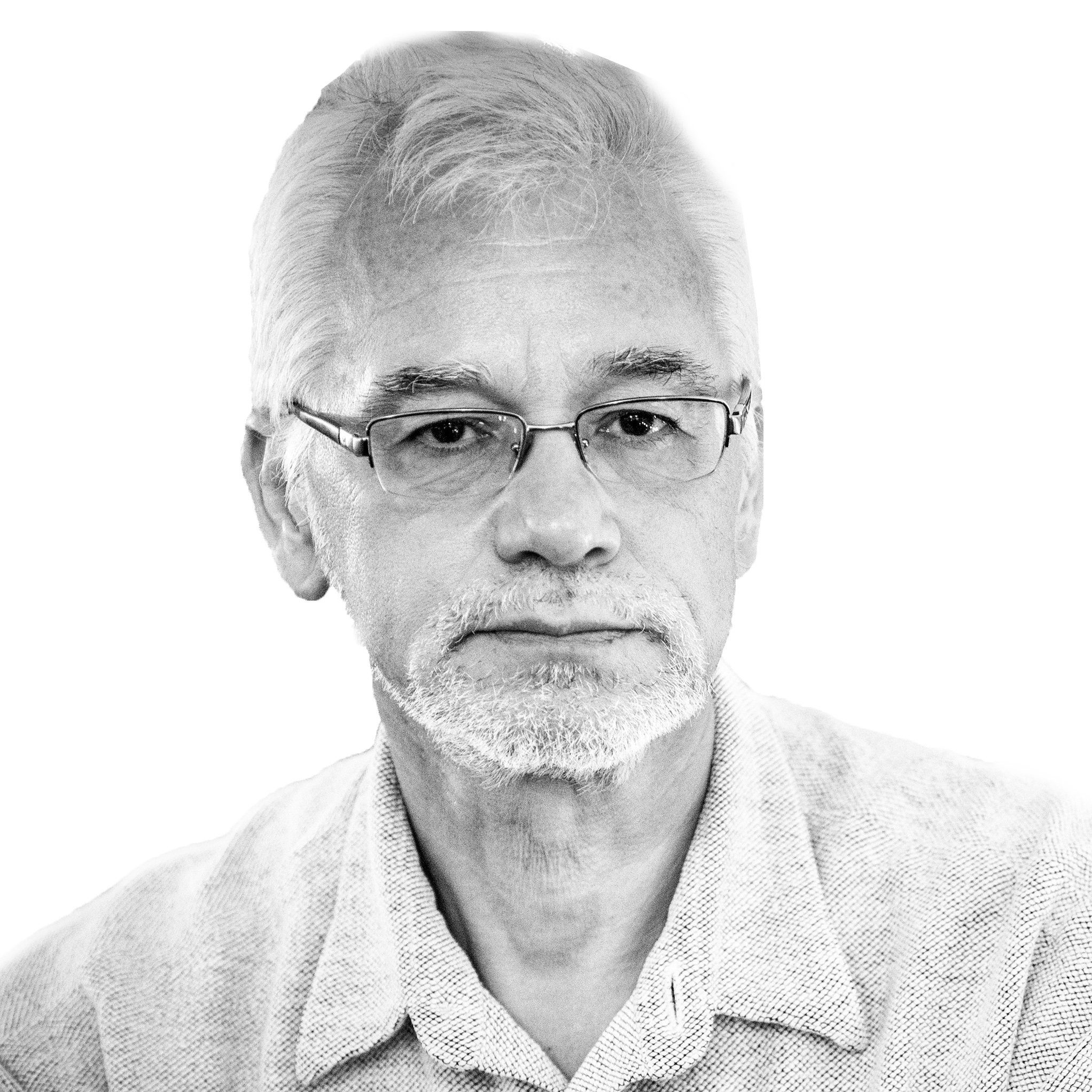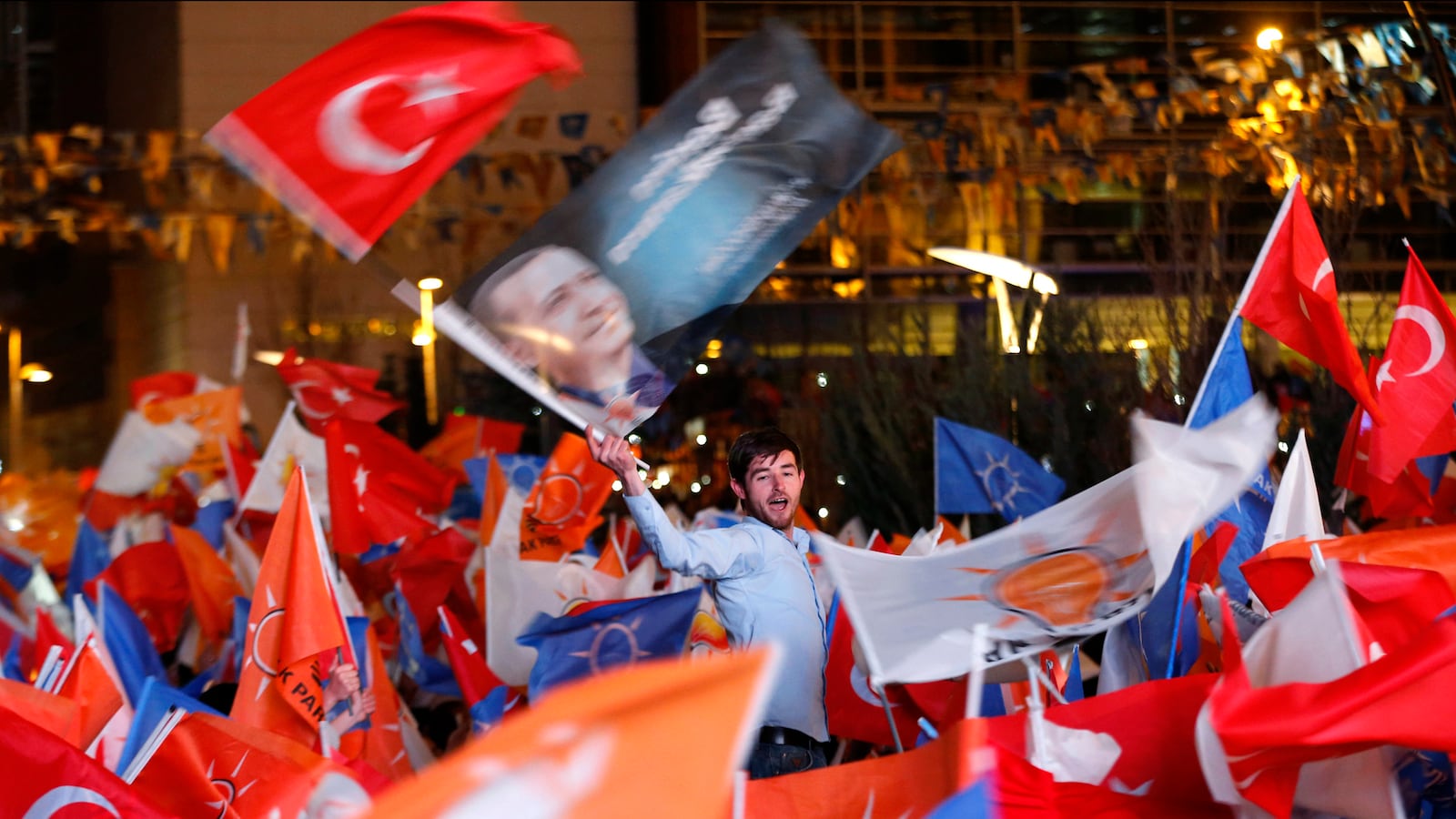After trouncing the opposition in municipal elections seen as an unofficial referendum on his government on Sunday, Recep Tayyip Erdogan more or less declared war on his opponents and signaled that he was no longer interested in the West’s opinion about him.
In an uncompromising victory speech at the AKP headquarters in Ankara, the 60-year-old Erdogan did not mention his country’s long-standing bid to join the European Union by raising democratic standards, declaring instead that Turkey had “the democracy that the West is yearning for. Turkey is the hope of the world.”
He also warned that NATO member Turkey was “at war” with neighbouring Syria after Syrian missile batteries locked onto Turkish fighter jets following the recent downing of a Syrian warplane by Turkey’s air force near the border between the two countries. He added any attack on an medieval tomb of the grandfather of the founder of the Ottoman Empire guarded by Turkey inside Syria would be read like an attack on Turkey itself. “Are we to remain spectators?” Erdogan asked.
The Prime Minister’s message to his critics at home was just as blunt. He declared his opponents had received an “Ottoman slap” in the elections. Erdogan accused his opponents of trying to sow “chaos” in the country and renewed his criticism of the US-based Islamic scholar Fethullah Gulen, whom he accuses of orchestrating a campaign to unseat his government. “We will not leave this country to Pennsylvania,” he said in reference to Gulen. Groups that were trying to bring down the government would pay the price. “We will go after them to their last hide-outs.”
According to unofficial partial results, Erdogan’s ruling Justice and Development Party (AKP) received 43 per cent of the overall vote and held on to power in the country’s biggest cities, Istanbul and Ankara. The biggest opposition party, the secularist Republican People’s Party (CHP), came in below 30 per cent.
The AKP’s result was better than its showing in the most recent municipal elections in 2009, when it raked in 39 per cent, but remained under Erdogan’s triumphant victory with almost 50 per cent of the vote in general elections in 2011.
Sunday’s election came after months of political tensions, starting with Erdogan’s hard line in reaction to countrywide protests last summer. When Istanbul prosecutors accused government members of corruption in December, the Prime Minister reacted by re-assigning thousands of police officers, judges and prosecutors, including those handling the corruption case. Erdogan argued that the charges were part of a plot by Gulen.

Since then, a string of leaked telephone conversations by Erdogan and others that found their way to the Internet suggested that the government was much deeper involved in corruption and activities like heaping pressure on the media than previously thought. In a desperate effort to stop the deluge, the government blocked access to Twitter and YouTube, as both platforms were used to spread the leaks.
In a sign of defiance, Erdogan appeared with his son Bilal to deliver his victory speech. According to one of the leaked telephone conversations, Erdogan and Bilal talked about hiding millions of dollars from the judiciary.
The fact that Erdogan won despite all these factors is not only a sign of the Prime Minister’s strength, but also of the weakness of the opposition, analysts said. Asli Aydintasbas, a columnist with the Milliyet daily, told the CNN-Turk news channel that the corruption scandal had presented a unique opportunity for the opposition to deal the government a blow. “And still, they couldn’t do it. They really have to sit down and think,” she said.
Fuat Keyman, of the Istanbul Policy Center of Sabanci University, told the NTV channel that the AKP had become a power “without alternative” in Turkey. He compared the role of the AKP, in government in Turkey since late 2002, with the traditional leadership position of Social Democrats in Sweden, who ruled the Scandinavian country for much of the 20th century.
Mustafa Akyol, an author and columnist specializing in political Islam, said religiously conservative voters backed Erdogan because the Turkish economy had improved significantly in the last ten years and because the AKP government had given more rights to observant Muslims by abolishing the long-standing ban of wearing the Islamic headscarf in public institutions and as public servants. Sunday saw the first-ever election of a headscarf-wearing mayor in Turkey. Fatma Toru, a member of the AKP, was elected mayor in the town of Meram in central Anatolia.
“The average Erdogan voter does not care about Twitter,” Akyol told The Daily Beast.
With the opposition humbled and Erdogan triumphant, commentators predicted that tensions would remain high as the country went from one election campaign straight into the next.
“The significance of these elections lies in determining the strategies for the presidential elections” scheduled for August, Levent Erden, who teaches at Istanbul’s Bilgi University, told the NTV news channel. He said Turkey was looking at a prolonged election cycle, with parliamentary elections expected in summer 2015 at the latest. “We’re only at the start of the game.”
Erdogan is expected to announce a run for the presidency soon. Emrullah Isler, a Deputy Prime Minister in the cabinet, said Sunday’s result would be “extremely influential” and “an important milestone” for the upcoming presidential vote, but added that Erdogan would speak on his possible candidacy himself.
The Prime Minister would need at least 50 percent to win the presidency outright and would have to beat the second strongest candidate in a run-off if he failed to win in the first round.
Fethi Acikel, a political scientist at Ankara University, predicted that “tensions will continue until the Presidential elections in August and even in the aftermath”. He told The Daily Beast one of the reasons was that many Turks were put off by Erdogan’s harsh style and growing authoritarianism. “As the political opposition feels excluded and suppressed by the government, demand for a political change in the government will continue.”
In a sign of a continuing confrontation between Erdogan’s camp and government critics, many opposition officials complained about alleged vote-rigging efforts by the AKP. Many reported sudden power failures in hotly contested districts during vote counting on Sunday night.
“There is no power in nine districts and in the court building” that was used for vote counting, Yilmaz Buyukersen, a mayoral candidate of the opposition CHP in the western city of Eskisehir, told Turkish media. “The people are outraged, everyone is on his balcony, beating pots and pans” in protests, he said.






